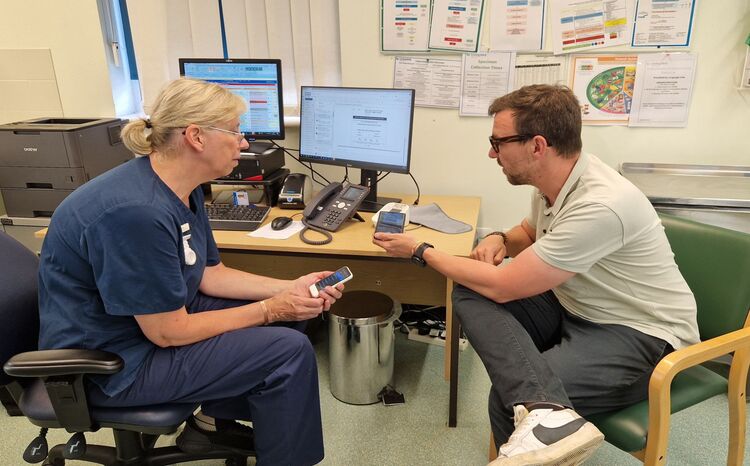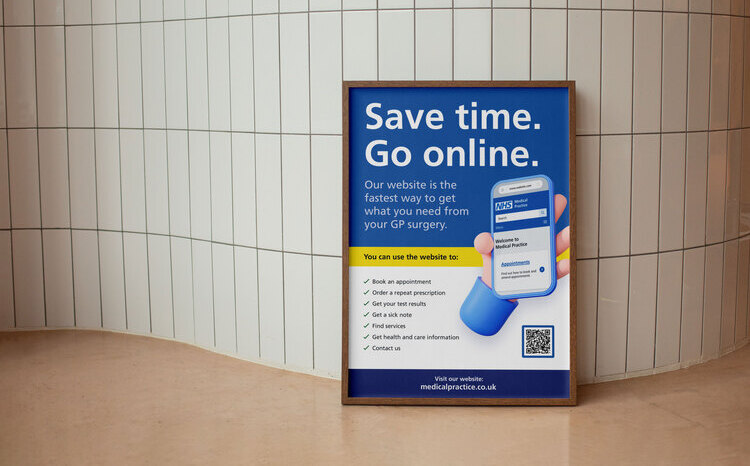Southampton GPs trial handheld translation device for patients
- 17 December 2024

- Handheld translation device, Pocketalk, was trialled at eight GP surgeries run by the Living Well Partnership in Southampton
- The trial aim to explore whether the device could improve the primary care experience of non-English speaking patients
- 100% patients said they would use Pocketalk again, while healthcare staff said it improved their interactions and workflows
A network of eight GP surgeries in Southampton has improved communication with its 5,850 non-English-speaking patients through a handheld translation device.
In a real-world validation study between April 2024 and August 2024, in partnership with SCALE Innovation. the Pocketalk device was used across Living Well Partnership’s surgeries to determine the impact of technology for patients in primary care triage settings.
Dave Barclay, managing partner of the Living Well Partnership, said: “The challenge of non-English language communication for our staff has been made significantly easier by deploying the Pocketalk into our surgeries.
“From supporting staff to register patients at front desk to enabling clear communication in some nursing situations, the Pocketalk has shown to be a valuable addition.”
The project was rolled out in three phases with feedback from all three phases finding that 100% of patients who used Pocketalk trusted it enough to use it again, while 93% of patients agreed it was easy to use and 83% said they would prefer to use the device over a traditional, telephone-based language interpretation system.
Phil Evans, cofounder at Scale Innovation, said: “The trial has shown that introducing technology into the fold, as another source of support, can offer efficiencies in healthcare both in terms of time and cost.
“Many primary and secondary care settings rely on telephone-based interpretation services, which are the appropriate solution in some cases.
“However, they can involve lengthy wait times and limited interpreter availability, particularly for minority languages. These drawbacks can cause extended appointment times and add stress to already time-sensitive consultations.”
The first phase of the trial was focused on front desk interactions, the second phase in routine nurse consultations and the third phase in community pharmacies.
According to Pocketalk, in five of the eight primary care settings, the device was used 100 times to translate 18 different languages.
Jess O’Dwyer, European general manager at Pocketalk, said: “In a health context, every conversation is too important to miss, and it’s crucial for everyone in the room to understand what is being discussed.
“In today’s world, there shouldn’t be barriers that prevent patients from engaging in sensitive and confidential conversations with their doctors.”
Following the trial, O’Dwyer said that Pocketalk is “engaged with a number of NHS trusts, primary care networks, GP practices, private practices and integrated care systems”, as well as being established in 10 hospitals in Ireland.
The trial received funding from the National Institute for Health and Care Research (NIHR) Invention for Innovation programme.
Mike Lewis, programme director of NIHR Invention for Innovation, said: “We are pleased to have supported the Pocketalk device in its successful trial within primary care settings.
“The positive results from the trial highlight its potential to improve patient care, helping to ensure that all individuals, regardless of language, can access the high-quality healthcare they deserve.”
Meanwhile, a handheld translation device is being trialled in the Southern Trust area of Northern Ireland, between September 2024 and March 2025, to see if it can improve communication.





